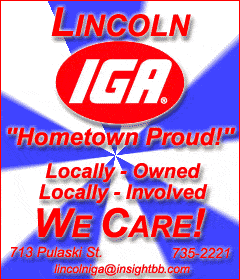|
Community-supported agriculture, or
CSA, is like the milkman bringing fresh milk to your door every
week, except that instead of milk it could be organic vegetables,
free-range chicken or farm-fresh eggs -- whatever you contract with
the farmer to bring. People can subscribe to their local CSA for a
wide variety of farm products. Some CSAs provide recipes and cooking
tips along with the week's shipment so their customers will know how
to prepare some of the more unusual vegetables they may receive.
Angelic Organics grows vegetables and
herbs for more than 1,000 Chicago and Rockford area households.
Members, called shareholders, receive a weekly three-fourths bushel
box full of a diversity of seasonal produce. The farm is 94 acres,
with approximately 25 acres in vegetable production each year. The
visit will highlight how a large-scale CSA farm operation blends
labor and equipment as well as the educational role a CSA farm plays
in the community.

"CSAs create a partnership between
local farmers and nearby consumers, who become members or
subscribers in support of the farm," said Tom Spaulding, director of
the nonprofit CSA Learning Center at Angelic Organics. "In exchange
for paying in advance -- at the beginning of the growing season,
when the farm needs cash -- CSA members receive the healthiest
produce throughout the season and keep money, jobs and farms in
their own community."
CSAs close the distance between the
farmer and the consumer, because the consumer buys directly from the
farm, like a roadside stand that comes to your door. "People who
subscribe to a CSA say that they like knowing where their food came
from and how it was grown or raised," said Deborah Cavanaugh-Grant,
a U of I research specialist who is coordinating the tours.
"Understanding the challenges facing family farmers in your
community will make you a true partner in the local food system."
[to top of second column in
this article]
 |

Six tours are offered this summer
through the University of Illinois Agroecology/Sustainable
Agriculture Program. The first toured ethnic grocery stores in
Chicago, and the second tour was of several organic farm operations.
"Sustainable agriculture includes alternative farming practices like
organic, but it's also about ways to provide an adequate and
dependable farm income," said Cavanaugh-Grant.
Tuesday, Aug. 19, a tour will visit
Tanglefoot Farm in Simpson to learn about prawn farming.
On Wednesday, Sept. 10, the topic will
be agritourism, with a visit to Hardy's Reindeer Ranch in Rantoul.
The tour will include a hayride and lunch served in the style of the
grand Old West.
The final tour is scheduled for
Wednesday, Oct. 29, to Pike's Hunting Club in Marion, where the
topic will be waterfowl fee hunting.
A small fee will be charged for each
tour. Registration at least one week in advance is required. A
registration form is available online at
http://web.aces.uiuc.edu/asap/index.html or by contacting
Cavanaugh-Grant.
For additional information call Deborah
Cavanaugh-Grant at (217) 968-5512 or send a message to
cvnghgrn@uiuc.edu.
To learn more about the CSA Learning
Center at Angelic Organics visit
www.csalearningcenter.org.
The tours
are sponsored by the Agroecology/Sustainable Agriculture Program in
the College of Agricultural, Consumer and Environmental Sciences at
the University of Illinois, along with the North Central Region
Sustainable Agriculture Research and Education Professional
Development Program and the Illinois Small Farm Task Force.
[University
of Illinois press release]
 |